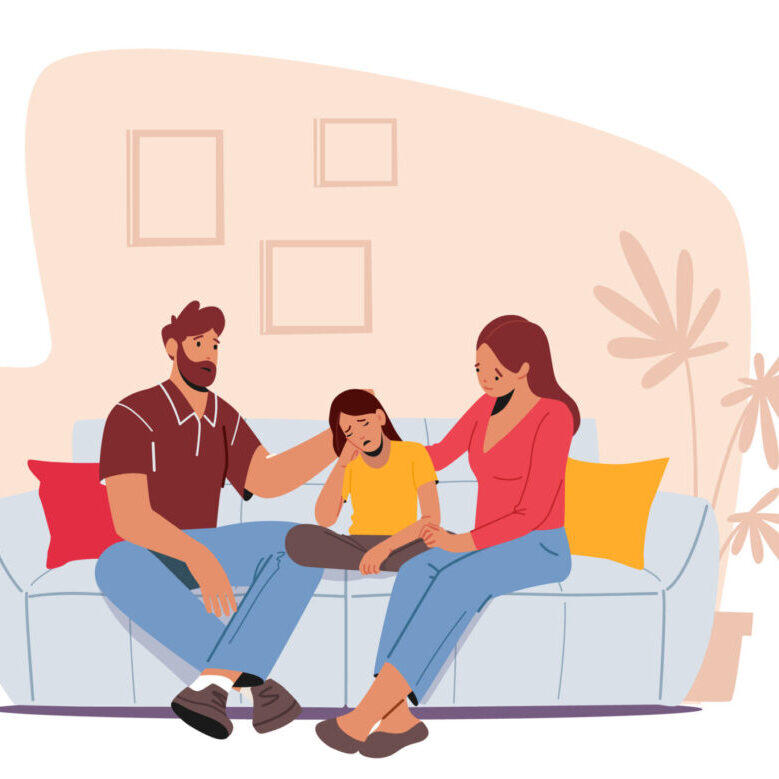What To Expect During Divorce Counseling & Benefits

Divorce is an emotionally turbulent period, stirring up a multitude of feelings, ranging from liberation to heartbreak, and often, divorce counseling is a great ruder for the turbulence! Divorce often drives individuals to explore different avenues for emotional relief and growth. One such pathway is individual therapy for divorce, which can provide invaluable assistance during and after the conclusion of a marriage.
Emotional Spectrum in the Divorce Experience
For anyone undergoing the disintegration of a marital relationship, the emotional complexities are considerable. Whether you instigated the divorce proceedings or found yourself responding to a partner’s request, the range of emotions can swing from the exhilarating prospect of a new beginning to the heaviness of guilt and loss.
Given the emotional rollercoaster that accompanies this life-altering event, many seek professional therapeutic support to navigate the murky waters of their feelings and to chart a course for their future lives.
Understanding Divorce Counseling
Although the concept of therapy specifically for divorce is relatively new, its importance cannot be overstated. Unlike premarital or couples therapy, divorce therapy is geared towards assisting individuals and couples in managing the convoluted emotional landscape that surrounds the ending of a marriage.
The objective is to ameliorate the stress associated with the divorce and to facilitate informed decision-making, both before and after the legal proceedings. Yet, many individuals are still unaware of the advantages it offers.
Do you need divorce counseling?
Should you find your emotional or mental well-being substantially compromised, unable to focus, or struggling with day-to-day activities, it may be time to consider counseling for divorce.
Consider these signs that additional support is warranted:
- Blaming yourself for the entirety of the problems in the marriage
- Alterations in sleep patterns
- Reduced interest in previously enjoyable activities
- Avoidance of people you care about
- Depletion of energy and enthusiasm
- Impaired concentration
- Appetite and weight fluctuations
- Anger that won’t seem to go away
- Thoughts of self-harm
- Emotional volatility, such as increased irritability or anxiety
- Self-deprecation and feelings of unworthiness
- Detrimental impacts on career or educational aspirations
- Questioning everything about your ability to parent or partner again
Advantages of Engaging in Divorce Counseling
The benefits of divorce-specific counseling are multi-faceted including:
- Skill-building to handle emotional distress and conflicts effectively
- Guidance through the contemplation and resolution stages of divorce
- Enhanced understanding of relationship failures, fostering healthier future partnerships
- Tips for a smooth transition into post-divorce life
- Self-care strategies for you and, if relevant, your children
- Navigating through the emotional and logistical stages of divorce
- Creating a conducive environment for family members to express their feelings
- Addressing lingering issues to establish a sound foundation for your subsequent life chapter
- Shedding light on the reasons behind the relationship’s collapse
- An unbiased viewpoint from the therapist to balance both parties’ perspectives
If you blame yourself for the divorce, you’re not alone.
Navigating the labyrinth of a failing marriage can sometimes lead us to a cognitive trap psychologists refer to as the “Fundamental Attribution Error,” a term coined by social psychologist Fritz Heider. This perceptual error lures us into overemphasizing our own virtuous characteristics while minimizing or completely overlooking the positive aspects of our partner. Conversely, we may focus disproportionately on our partner’s faults, while conveniently disregarding our own shortcomings.
Such skewed perspectives can entrench us in an unproductive cycle of blame and counter-blame, making the divorce proceedings a battleground of resentment and hostility. This approach is counterproductive, serving only to escalate tension and negatively affect everyone involved, including children if they are part of the equation.
The reality is that the disintegration of a marriage is rarely if ever, the sole responsibility of one individual. Counseling for divorce aims to provide an unbiased lens through which both partners can view the relationship. This helps in acknowledging one’s own role in the marital discord, which is instrumental for both personal growth and the healing process.
Achieving this clarity facilitates emotional resolution and promotes a more amicable separation, thereby reducing the risk of residual animosity. Most importantly, understanding the dynamics that led to the failure of the marriage can be an invaluable lesson for future relationships. Once you are cognizant of the pitfalls that ensnared you previously, you are better equipped to navigate new relationships more successfully when or if you decide to venture back into the realm of partnership.
By helping you overcome these cognitive biases, individual therapy for divorce provides an opportunity for forgiveness—both for yourself and your partner. This is a crucial step for emotional healing and ensures that you are not encumbered by past baggage as you transition into the next chapter of your life.
Is divorce counseling only helpful before the divorce?
Following the official dissolution of the marriage, the realignment of life in its aftermath can become overwhelming. At that point, post-divorce counseling comes into play. Coping with the residual emotions and adapting to the altered life circumstances is a tall order. Specialized therapists can assist you in managing these challenges effectively, focusing on emotional well-being, everyday adaptability, enhanced communication skills, and individual growth.
Finding the Right Therapeutic Support
Locating a therapist who suits your specific needs is crucial. Personal recommendations or referrals from healthcare professionals can be beneficial. Online directories can also facilitate your search, allowing you to filter based on various criteria such as location, expertise, and cost.
What can you expect in your first session?
The initial therapy session is generally about building rapport, understanding your circumstances, and assessing your needs. It serves as an opportunity for the therapist to grasp your unique situation, outline administrative formalities, and establish mutual objectives. The procedure is similar whether you’re attending individually or with your ex-partner.
Navigating Life as a Singular Entity After Divorce
Regardless of the duration of your marital union, that chapter in your life was defined by collaboration. Decisions, from the significant to the mundane, were often a group endeavor that took into account your partner’s thoughts and feelings. As you transition into your new, individualized life post-divorce, the landscape of decision-making shifts radically. You are solely at the helm now, and that responsibility can initially feel overwhelming.
The notion of independently executing even simple activities—like having a meal at a restaurant, catching a film alone, or socializing with your single friends—may stir up feelings of unease. Re-entering the dating scene or fostering new intimate relationships can also seem like daunting tasks.
Yet, it’s crucial to understand that this apprehension is a natural part of the transitional journey, and the eventual comfort in your newfound autonomy will take some time to cultivate. Counseling for divorce can be especially valuable about feeling supported as you move forward independently.
Giving Yourself Permission to Move Forward
A pivotal aspect of your healing process after divorce involves giving yourself permission to move on. This permission is more than just a psychological construct; it’s an emotional necessity for advancing into your new life chapter. Often, people are ensnared by a sense of loyalty to the past or overwhelmed by feelings of guilt and failure.
This emotional baggage can inhibit your ability to see the potential of the present moment and the promise of the future. Through therapy for divorce, you can genuinely give yourself the go-ahead, you’re setting a mental foundation that facilitates healing and growth. This internal green light allows you to start building a life that’s based on your unique needs, aspirations, and happiness.
Final Reflections on Divorce Counseling
At times, the unease associated with divorce can be so acute that it becomes a barrier to moving forward. Counseling for divorce can offer the encouragement needed to readjust your life in a constructive manner.
By shedding light on this intricate process and the myriad ways that specialized therapy can offer support, it’s clear that divorce doesn’t have to be navigated alone. Whether you are contemplating, going through, or emerging from a divorce, therapeutic support can be a crucial component in your journey toward healing and renewal.



